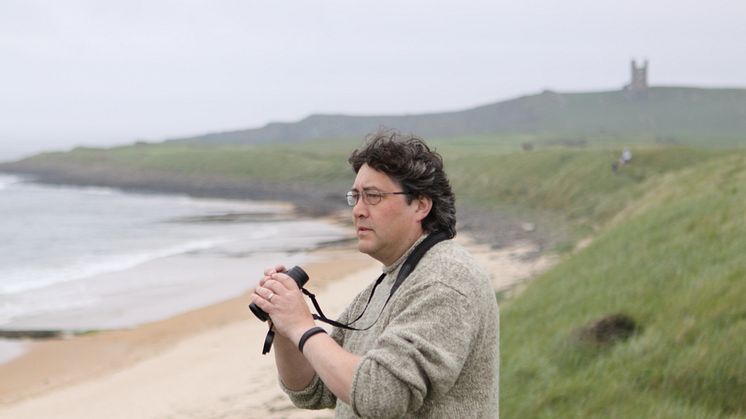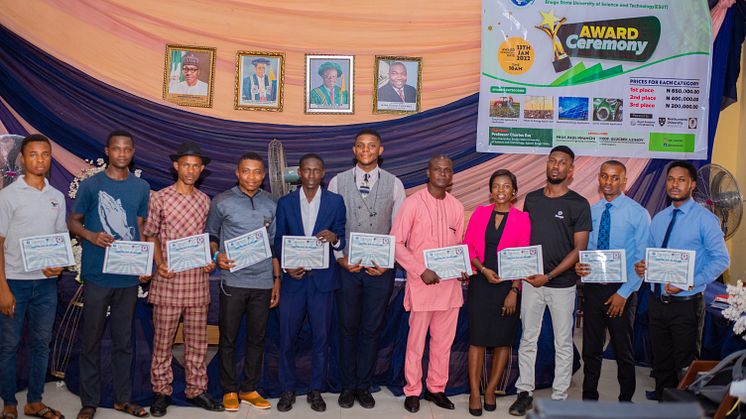
Press release -
Northumbria scholar wins award to study religious influence on modern conservationism
A Northumbria University academic has won a prestigious award to study the role of the Anglican parish in shaping the development of modern conservationism and the science of natural history.
Professor Brycchan Carey has been awarded a British Academy Wolfson Professorship worth £162,410 to carry out research for his next big project, entitled “The Parish Revolution: Parochial Origins of Global Conservationism”, for three years starting this September.
Professor Carey’s research will seek to demonstrate how, between 1660 and 1859, the Anglican parish played a central role in the development of the science of natural history, the genre of nature writing, and the origins of modern conservationism.
It will look at three centuries of natural history writing by clergymen and their parishioners across the British Empire, including figures such as physician and natural historian, William Turner of Morpeth, and Northumbrian Henry Baker Tristram, the canon of Durham Cathedral who read out Charles Darwin and Alfred Russel Wallace’s papers on evolution to the Linnean Society in 1858 and who wrote The Natural History of the Bible. The research will also investigate the contribution of lay people, women, and colonised people as well as clergymen.
Through his research, Professor Carey will demonstrate that clerical naturalists made a major contribution to the scientific knowledge that enabled nineteenth and twentieth-century theories of ecology and evolution, and popularised natural history as an activity and a literary genre. The research will also show that by putting local communities at the centre of a global movement, these clerical naturalists also profoundly influenced the character of the future conservation movement.
Professor Carey said: “In the 200 years to the mid-nineteenth century, a great deal of scientific research was conducted by clergymen but few people have asked why. I plan to investigate who these clerical naturalists were, how they worked, how they interacted with one another, and how they communicated with their fellow naturalists in the wider scientific community.
“Through my research, I want to remind people that religion and science have worked together very closely and effectively in the past. Clergymen and their close associates in the Age of Enlightenment made an enormous contribution to natural history that helped lay the groundwork for modern ideas of evolution, ecology, and environmentalism.
“It’s fantastic to be chosen for a British Academy Wolfson Professorship, which will allow me to explore these themes more closely. Hopefully it will prompt more conversations in parishes and local communities about how churches and local societies are vitally important to the future of conservation and the environment.”
Professor Carey is one of five academics to be awarded a British Academy Wolfson Professorship, which enables some of the UK’s most outstanding SHAPE (Social Sciences, Humanities and the Arts for People and the Economy) scholars to conduct vital research. First established in 2009, the awards are a joint initiative between the British Academy and the Wolfson Foundation, which awards grants to support and promote excellence in education, science and medicine, heritage, humanities and the arts, and health and disability.
Paul Ramsbottom, Chief Executive of the Wolfson Foundation, said: “The importance of research in the humanities and social sciences is critical to society – and now more than ever. We are therefore delighted to continue our partnership with the British Academy to support another cohort of Wolfson Research Professorships: a benchmark of excellence in both original scholarship and its elegant communication.”
Hetan Shah, Chief Executive of the British Academy, said: “We are delighted to announce another outstanding cohort of British Academy/Wolfson Research Professors. Made possible thanks to the generous support of the Wolfson Foundation, the professorships will enable five exceptional scholars to undertake innovative and ambitious research into topics including participatory approaches to museum collections and the parochial origins of global conservationism. We wish our new British Academy/Wolfson Professors the greatest success and look forward to seeing the results of their research and public engagement.”
Northumbria is renowned for its outstanding research in the field of humanities. English literature is ranked 21st in the UK for research power in the Research Excellence Framework (REF2021), while history occupies 26th place. Almost all of Northumbria’s research in these disciplines is rated world-leading or internationally excellent.
Topics
Categories
Northumbria is a research-intensive modern university with a global reputation for academic excellence. Find out more about us at www.northumbria.ac.uk --- Please contact our Media and Communications team at media.communications@northumbria.ac.uk with any media enquiries or interview requests ---











